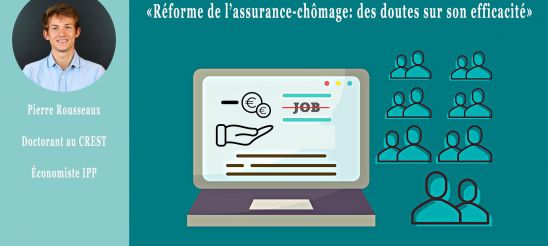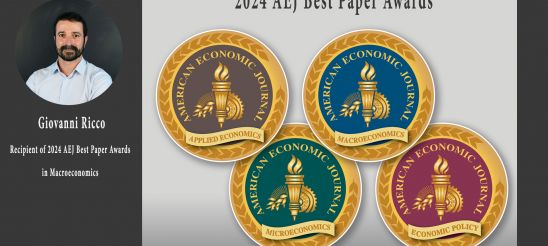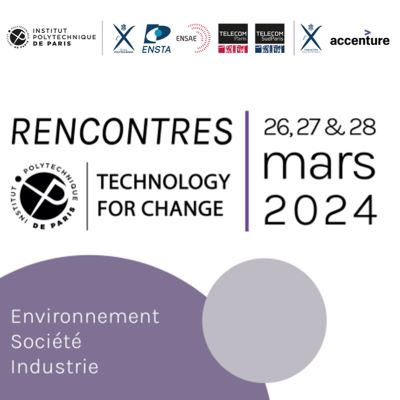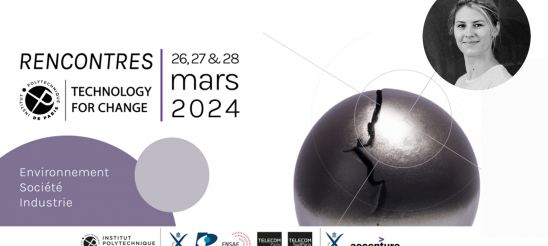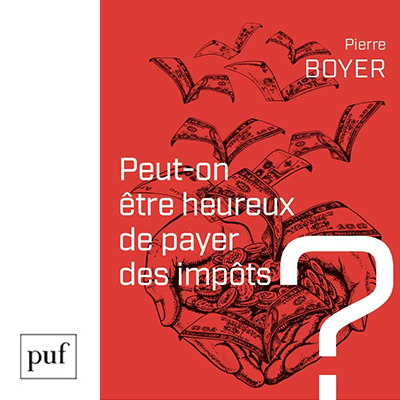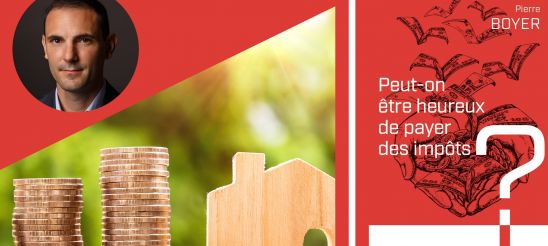Dans ce nouvel épisode de Génération Économie interview Céline Grislain-Letrémy, chercheuse affiliée au Centre de recherche en économie et statistique (CREST) et autrice de billets de blog pour la Banque de France. Avec elle pour en parler, Léocadie, économiste à la direction générale du Trésor et membre du projet Jeunesse(s) du Cercle des économistes.
Le Cercle des Économistes : une interview de Céline GRISLAIN-LETREMY pour le podcast Génération Économie
Dans ce nouvel épisode de Génération Économie interview Céline Grislain-Letrémy, chercheuse affiliée au Centre de recherche en économie et statistique (CREST) et autrice de billets de blog pour la Banque de France. Avec elle pour en parler, Léocadie, économiste à la direction générale du Trésor et membre du projet Jeunesse(s) du Cercle des économistes.
Une Tribune de Pierre Rousseaux pour le journal l’Opinion
Une Tribune de Pierre Rousseaux pour le journal l’Opinion
Publié le 5 avril 2024
Une Tribune de Pierre Rousseaux pour le journal l’Opinion
Une Tribune de Pierre Rousseaux pour le journal l’Opinion
Publié le 5 avril 2024
Giovanni Ricco, recipient of the 2024 AEJ Best Paper Awards in Macroeconomics
The American Economic Association announced the list of Award Reciptients for 2024.
Giovanni Ricco, Professor at Ecole polytechnique, received the annual American Economic Journal (AEJ) Best Paper Awards for his work with Silvia Miranda-Agrippino, Research Economist in the Monetary Policy Division at the Federal Reserve Bank of New York and a Research Affiliate in the Monetary Economics and Fluctuations (MEF) programme of the CEPR. The paper was published in 2021, in the American Economic Journal: Macroeconomics, while Giovanni Ricco was a Professor in the Department of Economics at University of Warwick.
The annual American Economic Journal (AEJ) Best Paper Awards highlight the best paper published in each of the American Economic Journals: Applied Economics, Economic Policy, Macroeconomics, and Microeconomics over the last three years. Nominations are provided by AEA members, and winners are selected by the journals’ Boards of Editors. Complimentary full-text articles are available at https://www.aeaweb.org/about-aea/honors-awards/aej-best-papers.
“The transmission of Monetary Policy Shocks” by Silvia Miranda-Agrippino and Giovanni Ricco – 13(3), (pp. 74-107) July 2021
Commonly used instruments for the identification of monetary policy disturbances are likely to combine the true policy shock with information about the state of the economy due to the information disclosed through the policy action. We show that this signaling effect of monetary policy can give rise to the empirical puzzles reported in the literature, and propose a new high-frequency instrument for monetary policy shocks that accounts for informational rigidities. We find that a monetary tightening is unequivocally contractionary, with deterioration of domestic demand, labor and credit market conditions as well as of asset prices and agents’ expectations.
More information on the article: The Transmission of Monetary Policy Shocks
Giovanni Ricco, recipient of the 2024 AEJ Best Paper Awards in Macroeconomics
The American Economic Association announced the list of Award Reciptients for 2024.
Giovanni Ricco, Professor at Ecole polytechnique, received the annual American Economic Journal (AEJ) Best Paper Awards for his work with Silvia Miranda-Agrippino, Research Economist in the Monetary Policy Division at the Federal Reserve Bank of New York and a Research Affiliate in the Monetary Economics and Fluctuations (MEF) programme of the CEPR. The paper was published in 2021, in the American Economic Journal: Macroeconomics, while Giovanni Ricco was a Professor in the Department of Economics at University of Warwick.
The annual American Economic Journal (AEJ) Best Paper Awards highlight the best paper published in each of the American Economic Journals: Applied Economics, Economic Policy, Macroeconomics, and Microeconomics over the last three years. Nominations are provided by AEA members, and winners are selected by the journals’ Boards of Editors. Complimentary full-text articles are available at https://www.aeaweb.org/about-aea/honors-awards/aej-best-papers.
“The transmission of Monetary Policy Shocks” by Silvia Miranda-Agrippino and Giovanni Ricco – 13(3), (pp. 74-107) July 2021
Commonly used instruments for the identification of monetary policy disturbances are likely to combine the true policy shock with information about the state of the economy due to the information disclosed through the policy action. We show that this signaling effect of monetary policy can give rise to the empirical puzzles reported in the literature, and propose a new high-frequency instrument for monetary policy shocks that accounts for informational rigidities. We find that a monetary tightening is unequivocally contractionary, with deterioration of domestic demand, labor and credit market conditions as well as of asset prices and agents’ expectations.
More information on the article: The Transmission of Monetary Policy Shocks
Alicia Bassière wins second place at the Rencontres Technology for Change 2024.

Alicia Bassière is a 4th year PhD student at CREST-Ecole polytechnique in energy economics, specializing mainly in the electricity market, supervised by David Benatia and Peter Tankov.
Alicia is committed to the fight against global warming, focusing on energy as a fundamental component.
For the third edition of the Rencontres Technology for Change, Alicia won second place during the Pitch for Change competition based on the 180-second thesis principle.
Alicia was able to present her thesis work, which involves modeling uncertainty in long-term investments in power generation capacity. In particular, she is working on various sources of uncertainty: electricity consumption, fuel prices, the number of players in the market and renewable production. Alicia uses advanced probabilistic methods for this, which she has popularized as tarot cards.
Beyond her thesis, Alicia is passionate about making economic research and the energy transition accessible to the general public. To this end, she actively participates in events promoting science and collaborates with journalists. In 2022, she joined the TF1 Group’s Committee of Environmental Experts to improve journalists’ understanding of energy and climate issues, occasionally appearing on the French TV channel LCI to share ideas.
As part of her scientific activity, Alicia Bassière is working on several research projects, jointly with her thesis supervisors:
– Moving forward blindly: capacity planning, uncertainty and environmental targets (joint work with David Benatia)
– A mean-field game model of electricity market dynamics (joint work with Peter Tankov and Roxana Dumitrescu).
Discover more of Alicia Bassière on her website: https://sites.google.com/view/alicia-bassiere/accueil?authuser=0
Alicia Bassière wins second place at the Rencontres Technology for Change 2024.

Alicia Bassière is a 4th year PhD student at CREST-Ecole polytechnique in energy economics, specializing mainly in the electricity market, supervised by David Benatia and Peter Tankov.
Alicia is committed to the fight against global warming, focusing on energy as a fundamental component.
For the third edition of the Rencontres Technology for Change, Alicia won second place during the Pitch for Change competition based on the 180-second thesis principle.
Alicia was able to present her thesis work, which involves modeling uncertainty in long-term investments in power generation capacity. In particular, she is working on various sources of uncertainty: electricity consumption, fuel prices, the number of players in the market and renewable production. Alicia uses advanced probabilistic methods for this, which she has popularized as tarot cards.
Beyond her thesis, Alicia is passionate about making economic research and the energy transition accessible to the general public. To this end, she actively participates in events promoting science and collaborates with journalists. In 2022, she joined the TF1 Group’s Committee of Environmental Experts to improve journalists’ understanding of energy and climate issues, occasionally appearing on the French TV channel LCI to share ideas.
As part of her scientific activity, Alicia Bassière is working on several research projects, jointly with her thesis supervisors:
– Moving forward blindly: capacity planning, uncertainty and environmental targets (joint work with David Benatia)
– A mean-field game model of electricity market dynamics (joint work with Peter Tankov and Roxana Dumitrescu).
Discover more of Alicia Bassière on her website: https://sites.google.com/view/alicia-bassiere/accueil?authuser=0
Sortie : “Peut-on être heureux de payer des impôts ?” un livre de Pierre Boyer, publié aux éditions PUF
Collection : Défis Économie
Date de parution : 03/04/2024
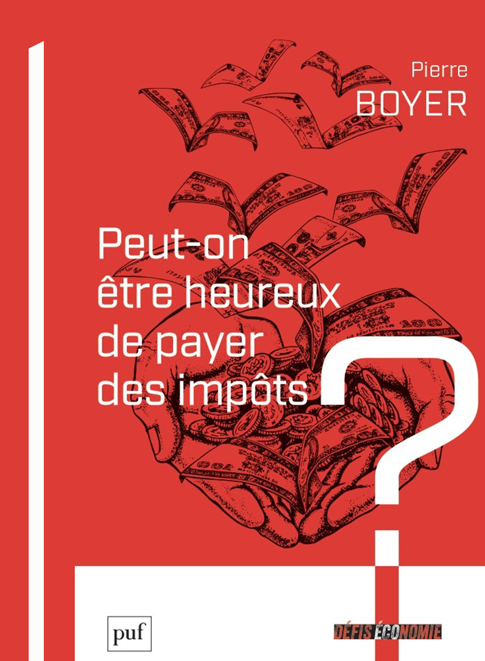
Résumé :
Peut-on être heureux de payer des impôts ? La réponse qui s’impose semble ne pouvoir être que négative. On peut même se demander si ce titre ne constitue pas une provocation.
Pierre Boyer, sélectionné pour le Prix du meilleur jeune économiste, montre que la relation des citoyens-contribuables à leurs impôts est complexe, et qu’il est possible de vivre « heureux » dans un pays à haute pression fiscale. A la condition toutefois de connaître les fragilités du consentement à l’impôts, de ne jamais le considérer comme acquis.
A l’appui d’enquête et de résultats inédits auprès de la population française, ce livre propose des manières concrètes pour améliorer ce consentement et pour rendre peut-être moins amers d’en payer.
https://www.puf.com/peut-etre-heureux-de-payer-des-impots
La presse en parle :
https://www.lenouveleconomiste.fr/librairie/peut-on-etre-heureux-de-payer-des-impots/
https://www.lesechos.fr/idees-debats/livres/vers-la-felicite-fiscale-2087877
https://news.dayfr.com/local/3673787.html
https://www.lesechos.fr/idees-debats/livres/vers-la-felicite-fiscale-2087877
https://www.la-croix.com/a-vif/impot-participatif-propose-par-gabriel-attal-une-bonne-idee-20240820
https://www.humanite.fr/en-debat/economie/impots-des-contribuables-heureux
https://www.radiofrance.fr/franceinter/podcasts/le-5-7/le-5-7-du-lundi-19-mai-2025-4281356
Sortie : “Peut-on être heureux de payer des impôts ?” un livre de Pierre Boyer, publié aux éditions PUF
Collection : Défis Économie
Date de parution : 03/04/2024

Résumé :
Peut-on être heureux de payer des impôts ? La réponse qui s’impose semble ne pouvoir être que négative. On peut même se demander si ce titre ne constitue pas une provocation.
Pierre Boyer, sélectionné pour le Prix du meilleur jeune économiste, montre que la relation des citoyens-contribuables à leurs impôts est complexe, et qu’il est possible de vivre « heureux » dans un pays à haute pression fiscale. A la condition toutefois de connaître les fragilités du consentement à l’impôts, de ne jamais le considérer comme acquis.
A l’appui d’enquête et de résultats inédits auprès de la population française, ce livre propose des manières concrètes pour améliorer ce consentement et pour rendre peut-être moins amers d’en payer.
https://www.puf.com/peut-etre-heureux-de-payer-des-impots
La presse en parle :
https://www.lenouveleconomiste.fr/librairie/peut-on-etre-heureux-de-payer-des-impots/
https://www.lesechos.fr/idees-debats/livres/vers-la-felicite-fiscale-2087877
https://news.dayfr.com/local/3673787.html
https://www.lesechos.fr/idees-debats/livres/vers-la-felicite-fiscale-2087877
https://www.la-croix.com/a-vif/impot-participatif-propose-par-gabriel-attal-une-bonne-idee-20240820
https://www.humanite.fr/en-debat/economie/impots-des-contribuables-heureux
https://www.radiofrance.fr/franceinter/podcasts/le-5-7/le-5-7-du-lundi-19-mai-2025-4281356




